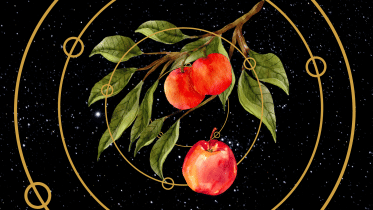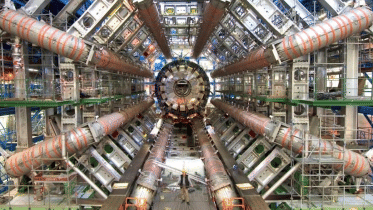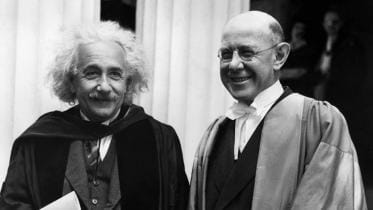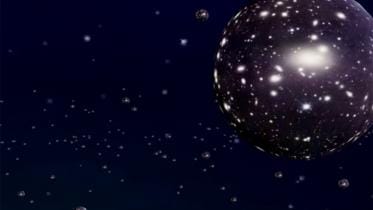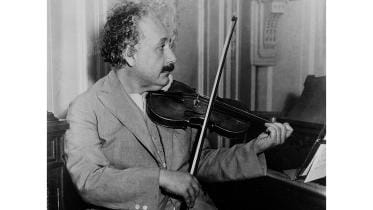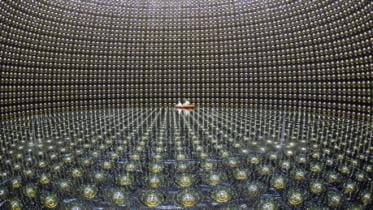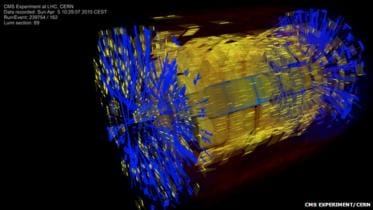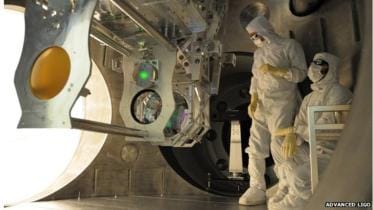Physics
What Bangladesh can learn from C. N. Yang’s legacy
As Bangladesh aspires to transform itself into a knowledge-based economy, Yang's story carries both inspiration and instruction
19 October 2025, 08:53 AM
Is there a force called gravity?
Thanks to Einstein, we live in a universe of curved spaces and altered time.
22 August 2024, 08:32 AM
Scientists think we could be on the verge of new physics
Science is always pushing the limit of accepted theories until we find that they don’t work anymore. And the latest results from CERN indicate that we might be on the verge of new physics.
8 March 2016, 10:29 AM
4 cosmic phenomena that travel faster than the speed of light
Since Einstein, physicists have found that certain entities can reach superluminal (that means "faster-than-light") speeds and still follow the cosmic rules laid down by special relativity.
19 January 2016, 05:31 AM
2 most dangerous numbers in universe threaten end of physics
A deeply disturbing and controversial line of thinking has emerged within the physics community. It's the idea that we are reaching the absolute limit of what we can understand about the world around us through science.
15 January 2016, 07:41 AM
5 things Einstein got totally wrong
Relativity is now a centerpiece of modern physics, the reason GPS satellites and mobile internet exist, and why Einstein is easily the most famous scientist in history.But Einstein made plenty of errors and oversights, and sometimes, he was flat out wrong.
27 December 2015, 08:42 AM
Einstein wouldn't like it: New test proves universe is "spooky"
The universe really is weird, which is bad news both for Albert Einstein and for would-be hackers hoping to break into quantum encryption systems. Eighty years after the physicist dismissed as "spooky" the idea that simply observing one particle could instantly change another far-away object, Dutch scientists said on Wednesday they had proved decisively that the effect was real.
22 October 2015, 02:06 AM
Neutrino 'flavours' win physics Nobel Prize
The 2015 Nobel Prize in Physics has been won by Takaaki Kajita and Arthur McDonald, for discovering how neutrinos switch between different "flavours".
6 October 2015, 11:20 AM
Large Hadron Collider turns on 'data tap'
The Large Hadron Collider has re-started scientific investigations after a two-year pause.
3 June 2015, 11:49 AM
Advanced gravity hunt is green lit
One of the great physics experiments of our age looks ready to begin its quest.
20 May 2015, 15:40 PM
LHC restart sees first collisions
The Large Hadron Collider smashes protons together for the first time since early 2013.
5 May 2015, 14:39 PM




